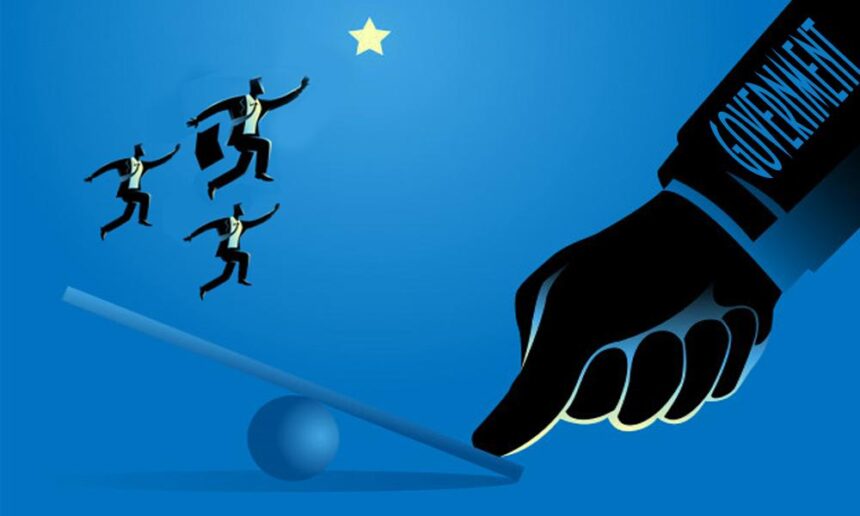Over the past fifty years, there have been no significant changes in our central government methods and strategies to rule the country. Instead there is an increasing number of politicians who allude to many changes happening. However, almost every person who got a position in the central government becomes an autocrat, treats the citizens as their bond servants, and still does all things in a dictatorial way. Though they passed laws and orders to moderate property relations, which are fundamental to society, and to develop an economy by the law of market economy, the central government still cannot get rid of its old socialist approaches in regulating other social relations.
Experts from the Harvard University have found that the understanding of the government playing the most important role in determining and developing national advantages is entirely baseless. The government’s decision to take over the duties of a helper and supporter for each economic sector, hinders firms in their efforts to develop their competitiveness on a long-term basis, causing the loss of possibility of continuous economic improvement. For instance, in our country, in order to keep major consumer goods prices stable (meat, petroleum etc.) certain type of goods are stored for an extended period and are released to the market at cheaper prices in times of shortage in supply.
The actual cost of such “aid” (storage cost, loss, seller’s choice, transport cost) is often higher than the sold price. This indeed is a wrong political action for income transfer attempting to support a part of the community with the money of other part of the community. Apart from material losses, this kind of “aid” dampens the firms’ desire and enthusiasm for competition, sometimes brings ties of some businesses and politicians too close and encourages corruption, which causes big damage to society. Aids only support and assist the increase of demand for aid itself. Experts claim that the most important role of the government in developing the economic competitiveness is to be a presser and challenger.
In order to define and develop its competitive advantage, the government needs not only to focus on improving and strengthening the business environment but also needs to support business competitiveness in all aspects. The only unalterable principle for the government is to establish precise standards of human safety and environmental impact and ensure their firm observation and compliance. In Spain, for instance, there are precise high standard established for the construction of building facilities and all competent agencies adhere to these standards strictly. In order to comply with such high standards and make a good profit, building companies introduce the best technologies and can be creative and proactive in their competition, thanks to which this country is very popular in Europe because of its beautiful and high quality buildings in terms of thermal insolation and sound proof walls and window sets, as well as planning and architectural designs.
Another tool of the government to improve the competitiveness of business sector is to give the right signal at the right time. For example, in the 70s when Japan-made products were considered to be low quality and cheap, the Japanese government had tightened up all quality-related national standards and initiated popular Deming Prize, which was an important signal for companies in planning their businesses. Because it was a matter of honor for companies to receive this prize, which is believed to be the guarantee of excellence in quality, after nearly ten years the name Japan stood for “quality” and soon almost every company started to export their products abroad.
In our country it is the opposite. Some public organizations rate the companies according to the amount of taxes the companies paid (originally the taxation is supposed to be the matter of government) and if exclude “prize certificates” the price of which is paid by the competing companies, there is no specific government policy in Mongolia in this sphere. It is even strange that such a prize does not separate the vodka, tobacco and petroleum selling companies that are anyway obliged to pay excise depending on peculiarities of their businesses.
The principal objective of the companies is not to pay taxes but to be competitive in their respective fields, expand scope of their business, strengthen their position in the market being different by their productivity and make a high profit. The main duty of the government for the economy is to create a domestic demand by which every business will continuously endeavor and be constantly creative and initiative in order to increase their productivity and profitability. The government has a duty not to support and assist business activities but to press and challenge them.
2010.04.22












